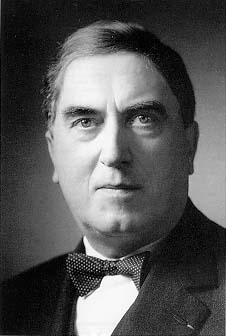
Maurice Gustave Duruflé was a French composer, organist, musicologist, and teacher.

Jehan-Aristide Paul Alain was a French organist, composer, and soldier. Born into a family of musicians, he learned the organ from his father and a host of other teachers, becoming a composer at 18, and composing until the outbreak of the Second World War 10 years later. His compositional style was influenced by the musical language of the earlier Claude Debussy, as well as his interest in music, dance and philosophy of the far east. At the outbreak of the Second World War, Alain became a dispatch rider in the Eighth Motorised Armour Division of the French Army; he took part in the Battle of Saumur, in which he was killed.
Pierre Eugène Charles Cochereau was a French organist, improviser, composer, and pedagogue.
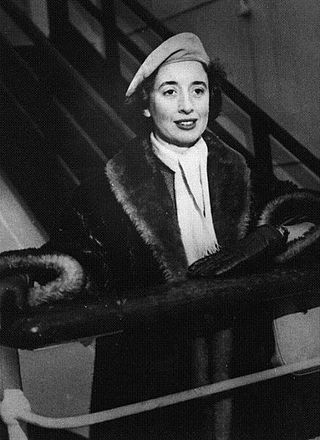
Jeanne Marie-Madeleine Demessieux was a French organist, pianist, composer, and teacher. She was the chief organist at Saint-Esprit for 29 years and at La Madeleine in Paris starting in 1962. She performed internationally as a concert organist and was the first female organist to sign a record contract. She went on to record many organ works, including her own compositions.
Pierre André Labric is a French organist, pedagogue and composer.

Olivier Jean-Claude Latry is a French organist, improviser, and composer. He is professor of organ in the Conservatoire de Paris.
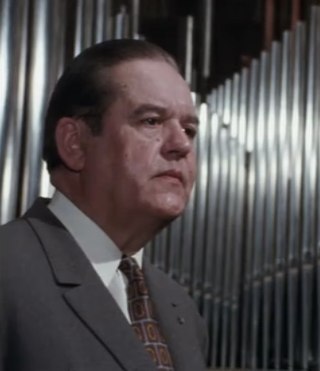
Jean-Jacques Charles Grunenwald, also known by his pseudonym Jean Dalve, was a French organist, composer, architect, and pedagogue.

François Daniel Roth is a French organist, composer, musicologist, and pedagogue. He was titular organist from 1985 until 2023 at the church of Saint-Sulpice in France's capital, Paris, alongside Sophie-Véronique Cauchefer-Choplin, and as of February 2023, will remain as emeritus titular organist.

Thierry Joseph-Louis Escaich is a French organist and composer.
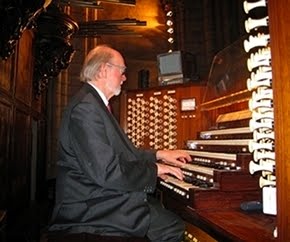
Jean-Pierre Leguay is a French organist, composer and improviser. He studied with André Marchal, Gaston Litaize, Rolande Falcinelli (organ), Simone Plé-Caussade (counterpoint), and Olivier Messiaen (composition), before serving as titular organist at Notre-Dame-des-Champs, Paris from 1961 to 1984. In 1985 he was named a titular organist at the Cathedral of Notre-Dame de Paris, alongside Olivier Latry, Yves Devernay and Philippe Lefebvre.

Yves Marie-Édouard Devernay was a 20th-century French organist, improviser and composer.
Adolphe Alexandre Silvain Marty was a French organist, improviser, composer and music educator who was blind for most of his life.
Albert Paul Alain was a 20th-century French organist and composer.
Henri Jules Joseph Nibelle was a French organist, choral conductor and composer.
Denis Comtet is a French organist, pianist, choral conductor and conductor.
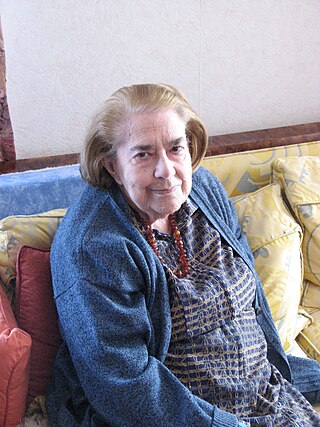
Jeanne Angèle Desirée Yvonne Joulain was a French organist, concertist and music educator.
Noëlie Marie-Antoinette Pierront was a 20th-century French organist, concertist and music educator.

Jean-Baptiste Marcel Éloi Bonfils was a 20th-century French organist, music educator, musicologist and composer.
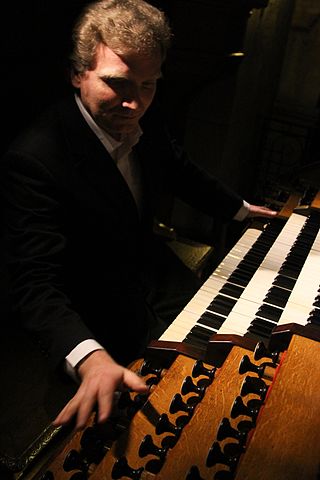
Éric Maurice Lebrun is a French composer, organist, musicologist, and author.
Henri-Franck Beaupérin is a French organist and improviser.












